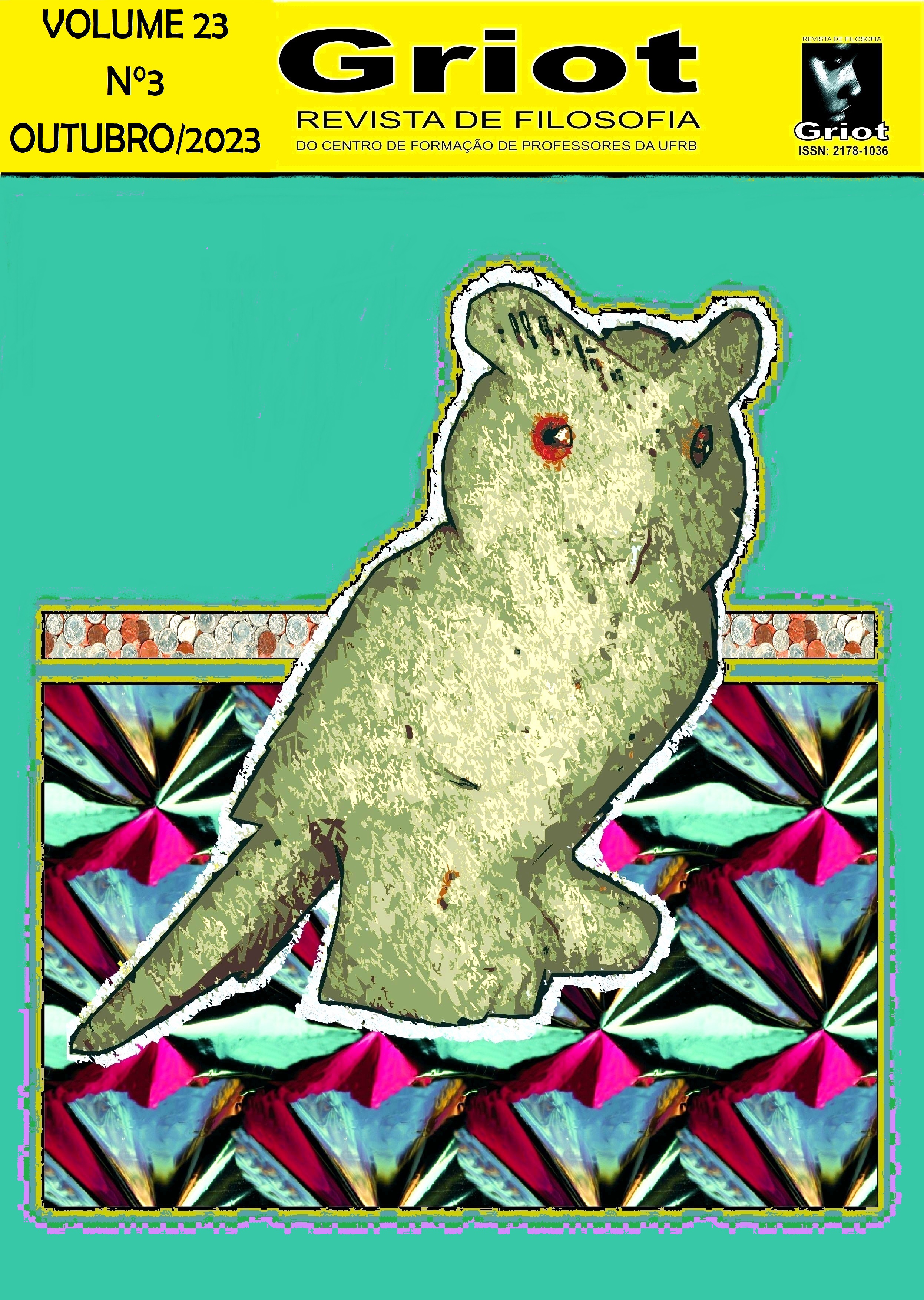The challenges of the cartesian metaphysical foundation of science
DOI:
https://doi.org/10.31977/grirfi.v23i3.3436Keywords:
Descartes; Truth; Certainty; God; Science; Ideas.Abstract
Cartesian epistemology is part of a bold project to overcome the ancient-medieval theories of knowledge. The Meditationes de Prima Philosophia, Descartes' work, written in 1641, is the main theoretical framework of the radical and innovative philosophical rupture undertaken in this period that has great repercussions in the following centuries. What are the main theoretical challenges faced by Cartesianism, to solidify and consolidate the philosophical Modernity on a scientific basis, through the criteria of clarity and distinction? This question guides this article that, by means of a bibliographical review, following the method of critical-investigative analysis, via re-readings and interpretations of renowned commentators seeks to put in evidence the main points for the Cartesian metaphysical foundation of science. The Cartesian texts concerning the theme of critical judgment are scrutinized and reviewed, seeking to highlight their unprecedentedness in the history of Western philosophy by contrasting them with the theories of epistemology and theology inherited from tradition. The Cartesian ideal of science is based on indubitability as the ultimate criterion of certainty and overcomes the previous forms of scepticism in history with impacts on all fields of human knowledge. We conclude, aware of the limits of the present investigation, that Cartesian thought focuses on the primacy of thought and ideas over data of sensible origin, to ground its worldview and its justification of truth, having, still, the certain and true knowledge of the idea of God as an epistemological support of truths, however, no longer the God of ancient-medieval metaphysics.
Downloads
References
ARIEW, Roger. Descartes and scholasticism: the intellectual background to Descartes´s trought. In: The Cambridge Companion to Descartes. Cambridge: Cambridge University Press, 1992. p. 58-90.
ARISTÓTELES. Metafísica. São Paulo: Edições Loyola, 2002.
CAVAILLÉ, Jean-Pierre. Descartes a Fábula do Mundo. Lisboa: Instituto Piaget, 1997.
CLARKE, D. Descartes's philosophy of science and the scientific revolution. IN: The Cambridge Companion to Descartes. Cambridge: Cambridge University Press, 1992. p. 258 85.
DESCARTES. Oeuvres de Descartes; publiées par Charles Adam e Paul Tannery. Paris: Vrin/CNRC, 1971-1974, 13 v.
DESCARTES. Discurso do Método; As paixões da Alma; Meditações; Objeções e Respostas; Cartas. Introdução de Gilles-Gaston Granger; Prefácio e Notas de Gérard Lebrun; Tradução de J. Guinsburg e Bento Prado Júnior. 4 ed. São Paulo: Nova Cultural (Coleção Os Pensadores), 1987-1988, 2 FABRO, Cornelio. Introduzione all’ateismo moderno. Roma: Editrice Studium, 1969.
DESCARTES. Princípios da Filosofia. Tradução de Alberto Ferreira. 4 ed. Lisboa: Guimarães Editores, 1969.
FICHANT, Michel. Science et Métaphysique dans Descartes et Leibniz. Paris: PUF, 1989.
GILSON, Etienne. Index scolastico-cartésian. 2 ed. Paris: 1979.
GOUHIER, Henri. La pensée métaphysique de Descartes. Paris: Librairie J. Vrin, 1962.
GRIMALDI, Nicolas. L’expérience de la pensée dans la philosophie des Descartes. Paris: Librairie J. Vrin 1978.
GUÉROULT, Martial. Descartes selon l'ordre des raisons. Paris: Aubier/Montaigne, 1953. 2 v.
KANT, I. Critique de la Raison Pure. Tradução de José Barni. Paris: Garnier Flammarion, 1976.
KENNY, Anthony. Descartes – a Study of his Philosophy. Bristol: Thoemmes Press, 1995.
LANDIM, Raul. Evidência e Verdade no Sistema Cartesiano. São Paulo: Loyola, 1992.
MARION, Jean-Luc. Sobre a ontologia cinzenta de Descartes. Lisboa: Instituto Piaget, 1997.
POPKIN, R. H. The History of Scepticism from Erasmus to Descartes. Nova Iorque: Harper & Row, 1964.
TEIXEIRA, Lívio. Ensaio sobre a moral de Descartes. São Paulo: Brasiliense, 1980.
ZILLES, Urbano. Filosofia da Religião. São Paulo: Paulinas, 1991.
ZILLES, Urbano. O Problema do Conhecimento de Deus. 2. Ed. Porto Alegre: EDIPUCRS, 1997.
Downloads
Published
How to Cite
Issue
Section
License
Copyright (c) 2023 Luis Fernando Biasoli

This work is licensed under a Creative Commons Attribution 4.0 International License.
The authors who publish in Griot: Revista de Filosofia maintain the copyright and grant the magazine the right of first publication, with the work simultaneously licensed under the Creative Commons Attribution 4.0 International License, allowing sharing and adaptation, even for commercial purposes, with due recognition of authorship and initial publication in this journal. Read more...









































































